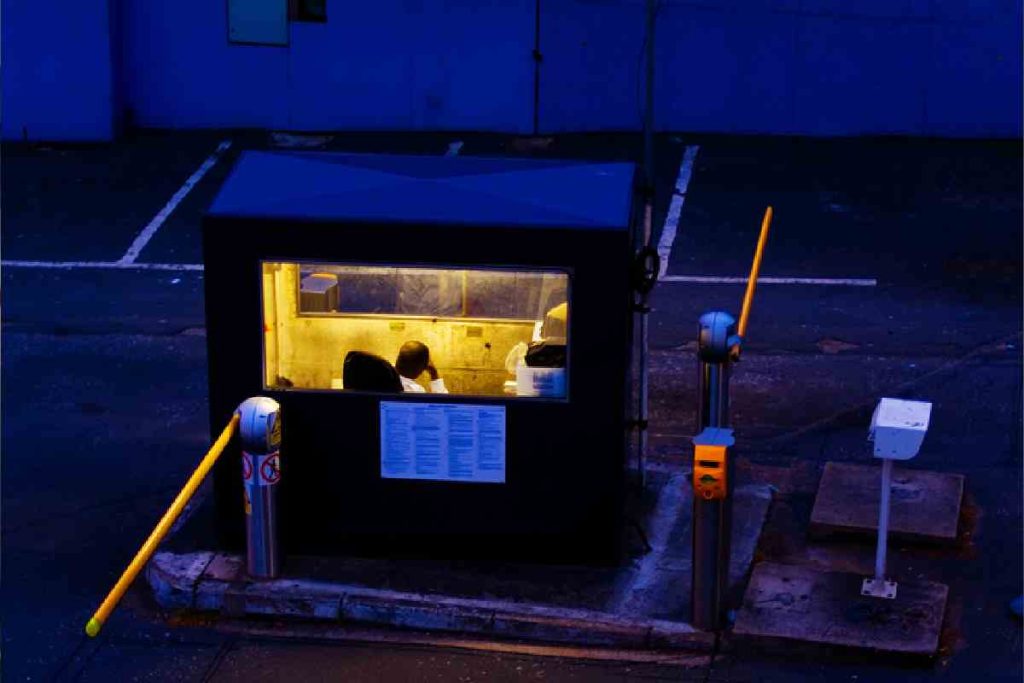How Security Guards Survive the Graveyard Shift: Tips for Staying Alert & Safe
Security guards are the unsung heroes of the night, keeping watch over properties, businesses, and public spaces when the world sleeps. Many security professionals work the graveyard shift, typically from late evening to early morning. While this shift is essential for ensuring safety, it can affect physical and mental well-being. Understand the challenges of the graveyard shift and the necessary tips for security guards to survive and thrive during these demanding hours.
Table of Contents
The Challenges of the Graveyard Shift
Working during the graveyard shift presents unique challenges affecting security guards’ health, safety, and job performance. Here are some common challenges they face:
#1: Sleep Deprivation
One of the most significant challenges of the graveyard shift is sleep deprivation. The human body’s internal clock, known as the circadian rhythm, naturally encourages sleep at night. Working during these hours can disrupt your sleep patterns, leading to fatigue and reduced alertness.
#2: Isolation
The graveyard shift often means less interaction with colleagues and the outside world. Security guards may experience feelings of isolation, which can impact their mental health and job satisfaction.
#3: Increased Vulnerability
Darkness and reduced visibility during the night can make security guards more vulnerable to security threats. Criminals may be emboldened by the cover of darkness, making the job riskier.
#4: Health Issues
Irregular sleep patterns and disrupted circadian rhythms can lead to various health issues, including insomnia, digestive problems, and an increased risk of chronic diseases.
Tips for Surviving the Graveyard Shift
Working the graveyard shift may be challenging, but with the right strategies, security guards can overcome these obstacles and excel in their roles. Here are some tips for surviving and thriving during the night shift:
Tip #1: Prioritize Sleep
Getting quality sleep is crucial for staying alert and healthy. Create a sleep-conducive environment by using blackout curtains, reducing noise, and keeping the bedroom cool. Establish a consistent sleep schedule, even on your days off, to help regulate your circadian rhythm.
Tip #2: Stay Active
Regular physical activity can boost your energy levels and help combat sleepiness. Incorporate exercise into your daily routine, even if it means taking short breaks during your shift for a brisk walk or stretching exercises.
Tip #3: Maintain a Healthy Diet
Nutrition plays a significant role in staying alert during the graveyard shift. Avoid heavy meals before bedtime, as they can disrupt sleep. Instead, eat lighter, balanced meals and stay hydrated throughout your shift.
Tip #4: Create a Support System
Combat feelings of isolation by staying connected with colleagues, friends, and family. Join online or local communities for night shift workers to share experiences and coping strategies.
Tip #5: Stay Well-Lit
Well-lit work areas can improve visibility and deter potential threats. Ensure that your workspace is adequately illuminated, and use proper lighting when patrolling or monitoring. Bright light exposure during breaks can also help reset your circadian rhythm.
Tip #6: Remain Engaged
To maintain alertness during the graveyard shift, stay engaged in your tasks. Regularly change your position, take short breaks, and remain vigilant. Establish a routine that keeps you focused and active throughout your shift.
Tip #7: Prioritize Safety
Working during the night can pose increased safety risks. Familiarize yourself with safety protocols and emergency procedures, and always be prepared for potential threats. Trust your instincts and report any suspicious activity immediately.
Tip #8: Practice Stress Management
Stress is a common companion for night shift workers. Engage in stress-reduction techniques such as deep breathing, meditation, or mindfulness to help manage anxiety and stay focused.
Tip #9: Embrace Good Habits
Maintain a healthy lifestyle outside of work. Limit caffeine and alcohol intake, and avoid using electronic devices before bedtime, as the blue light emitted can interfere with sleep.
Tip #10: Seek Professional Help
If you’re struggling to cope with the challenges of the graveyard shift, consider seeking support from a mental health professional. They can provide guidance and strategies for managing stress, anxiety, and sleep issues.
Security guards are critical in maintaining safety and security, even during the challenging graveyard shift. Security professionals can survive and thrive in their roles by prioritizing sleep, staying active, maintaining a healthy lifestyle, and seeking support when needed. The dedication and vigilance of security guards ensure that businesses, properties, and communities remain safe, even in the darkest hours of the night.
